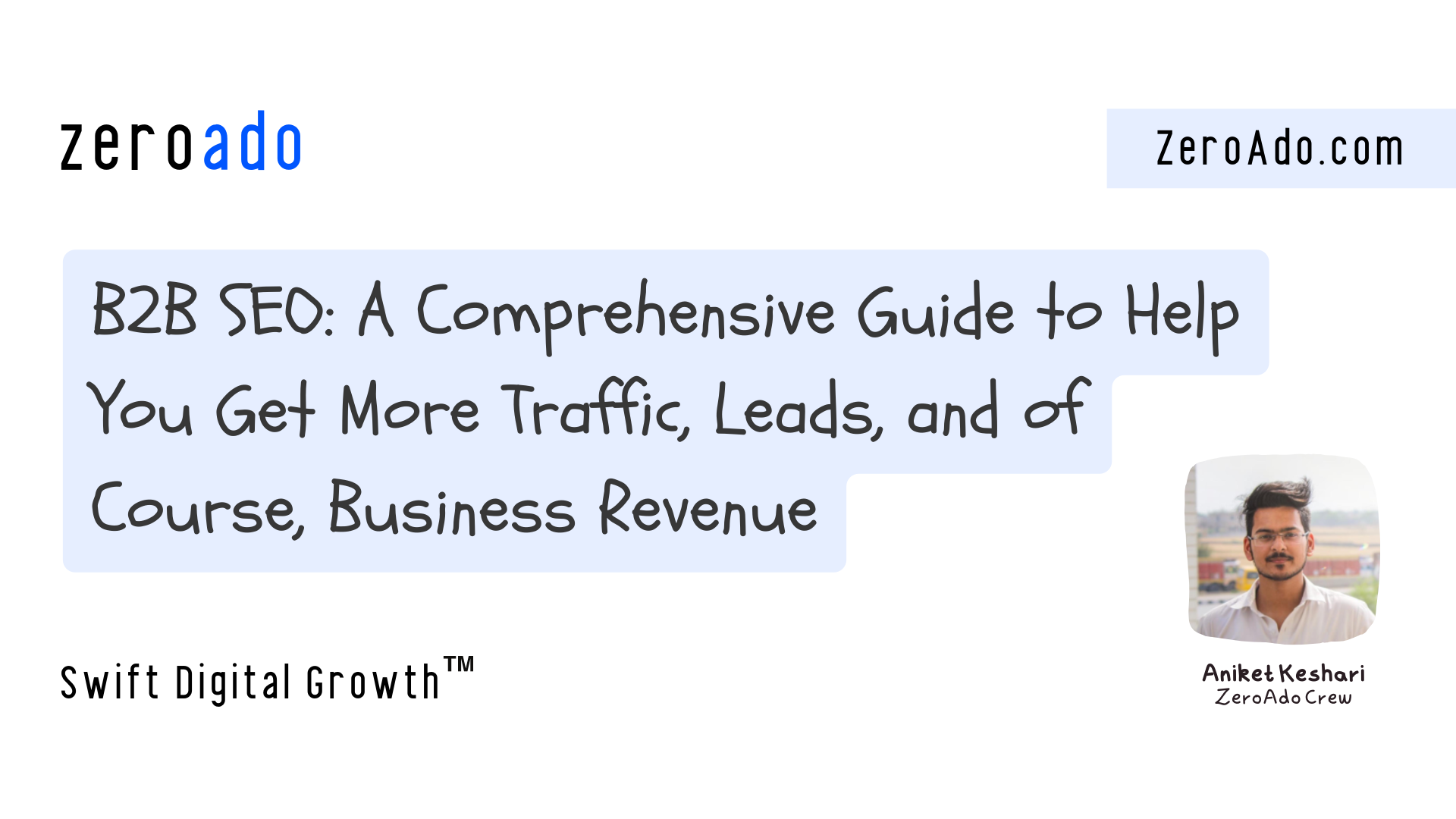Do you own a business that provides goods or services to other businesses? Are you wondering how to organically get your products or services in front of your target customers on search engines like Google, Safari, or Yahoo?
SEO (Search Engine Optimization) is one of the most powerful customer acquisition channels for B2B companies. It plays a pivotal role in driving growth, generating qualified leads, and building brand authority.
But finding the right SEO partner can be overwhelming. Because some businesses choose full-service B2B marketing agencies that handle everything from branding to lead generation, while others prefer specialized SEO companies in India with deep expertise in search and content. The best choice depends on your goals, budget, and how hands-on you want to be.
In this guide, we’ll cover the key components of B2B SEO, explain how it aligns with the buyer’s journey, provide tips for selecting the best B2B SEO agency, and share practical strategies to boost your online presence and achieve measurable results.
- What is B2B SEO?
- Why does B2B SEO matter?
- B2B SEO vs. B2C SEO
- How B2B SEO works in the B2B buyers’ journey?
- Important aspects of B2B SEO
- Content marketing is important for B2B SEO success
- Link building for B2B SEO
- Bonus tips [with examples]: Turn your website traffic into leads with B2B SEO and conversion strategies
- Common B2B SEO mistakes that you must avoid
- B2B SEO case studies and success stories
- How to choose the right B2B SEO agency
- B2B SEO tools and platforms – A quick guide
- Build a world class B2B SEO strategy for your company
- Frequently asked questions – B2B SEO
What is B2B SEO?
B2B SEO is about improving a company’s online presence to attract other businesses instead of individual customers. It includes creating content, using keywords, and applying strategies that appeal to a business audience. The goal is to rank well in search engines like Google, Safari, and Bing for terms that matter to industry professionals and decision-makers.
For example, a company selling SEO copywriting tools can target keywords like “SEO tools for businesses”, “best SEO tools for content marketers”, or “AI tools for content writing”. This helps them appear in search results when businesses search for tools to improve their content.
Why does B2B SEO matter?
B2B SEO helps you connect with your ideal clients/customers at every stage of the decision-making process. It ensures your business is visible when potential customers search for the products or services you offer.
Key reasons why B2B SEO is important
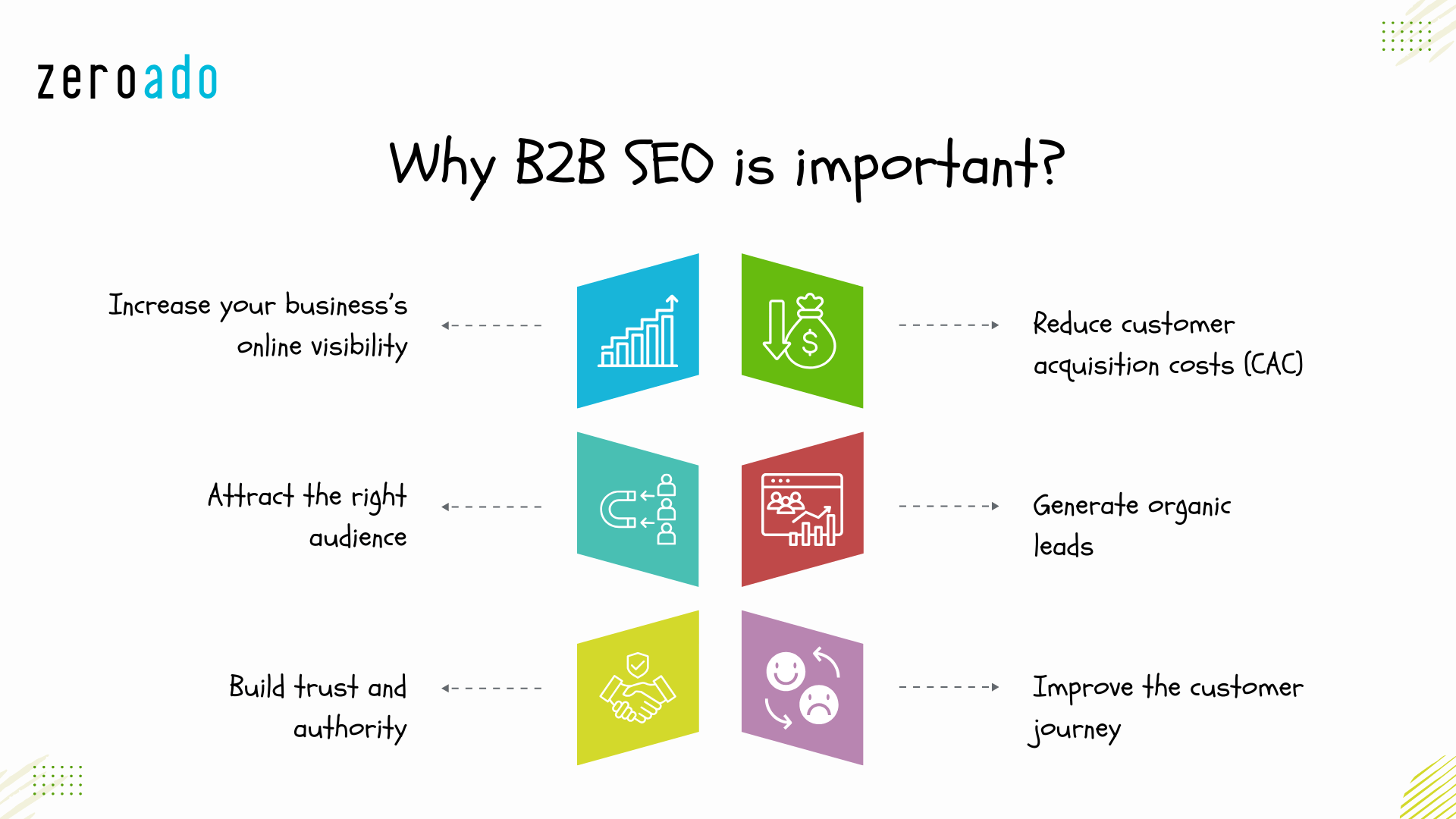
Increase your business’s online visibility
SEO makes it easier for your business to appear in search results. When your target audience searches for solutions, your website is more likely to be found, putting your business in the spotlight.
Attract the right audience
B2B SEO ensures you’re targeting people who are genuinely interested in your offerings, such as professionals or companies in your industry. This helps you connect with potential clients who are the best fit for your business.
Build trust and authority
A higher ranking on search engines boosts your credibility. Both search engines and users view your business as a trusted source of information, helping you stand out as a leader in your field.
Generate organic leads
SEO drives organic traffic to your website, this means people find you naturally, without paid ads. These leads are often high-quality because they’re actively searching for solutions like yours.
Reduce customer acquisition costs (CAC)
Unlike paid ads, SEO provides long-term benefits. Once your content ranks well, it continues to attract visitors without additional spending, helping you lower the cost of acquiring new customers.
Improve the customer journey
B2B SEO ensures you’re present at every stage of the buyer’s journey. From providing information in the early stages to offering solutions when they’re ready to decide, SEO helps guide potential clients smoothly through the process.
B2B SEO vs. B2C SEO
Is there any difference between B2B SEO and B2C SEO?
Probably not! SEO is SEO, whether it’s B2B or B2C.
In simple terms, there isn’t a special algorithm just for B2B SEO. However, the way you apply SEO strategies can differ significantly based on your target audience and business goals. While both B2B and B2C SEO aim to improve visibility and drive traffic, their approach, content, and focus vary.
B2B SEO focuses on reaching decision-makers within companies. It often involves targeting low-volume keywords, creating in-depth, value-driven content to address specific business needs. The buyer’s journey is typically longer, requiring multiple touchpoints before conversion.
B2C SEO, on the other hand, targets high-volume keywords, individual consumers and focuses on emotional appeal, quick conversions, and simpler decision-making processes.

How B2B SEO works in the B2B buyers’ journey?
When running a B2B business, it’s important to understand how your potential customers, or “buyers,” go through a decision-making process before choosing a product or service. B2B SEO helps your business show up online at every stage of this journey, ensuring you guide potential clients toward becoming loyal customers. Let me break it down for you in a way that’s easy to follow.
Overview of the B2B buyer’s journey
The B2B buyer’s journey usually has three main stages:
Awareness: The buyer identifies a problem
At this stage, your buyer realizes they have a problem or need. They’re not looking for specific products yet, they’re just trying to understand their issue better.
For example, a company might notice their project management is inefficient and start searching for “why projects fail” or “how to improve project efficiency”.
Consideration: The buyer explores possible solutions
Once the buyer understands their problem, they begin looking for ways to solve it. They explore different types of solutions, like software, tools, or services, and start comparing their options.
For instance, they might search for “best project management tools”, or “comparison of tool A vs. tool B”.
Decision: The buyer selects a solution
At this stage, the buyer has narrowed down their options and is ready to make a final choice. They’re looking for specific details to confirm their decision, like pricing, features, or reviews.
For example, they might search for “buy [tool name]” or “customer reviews for [product]”.
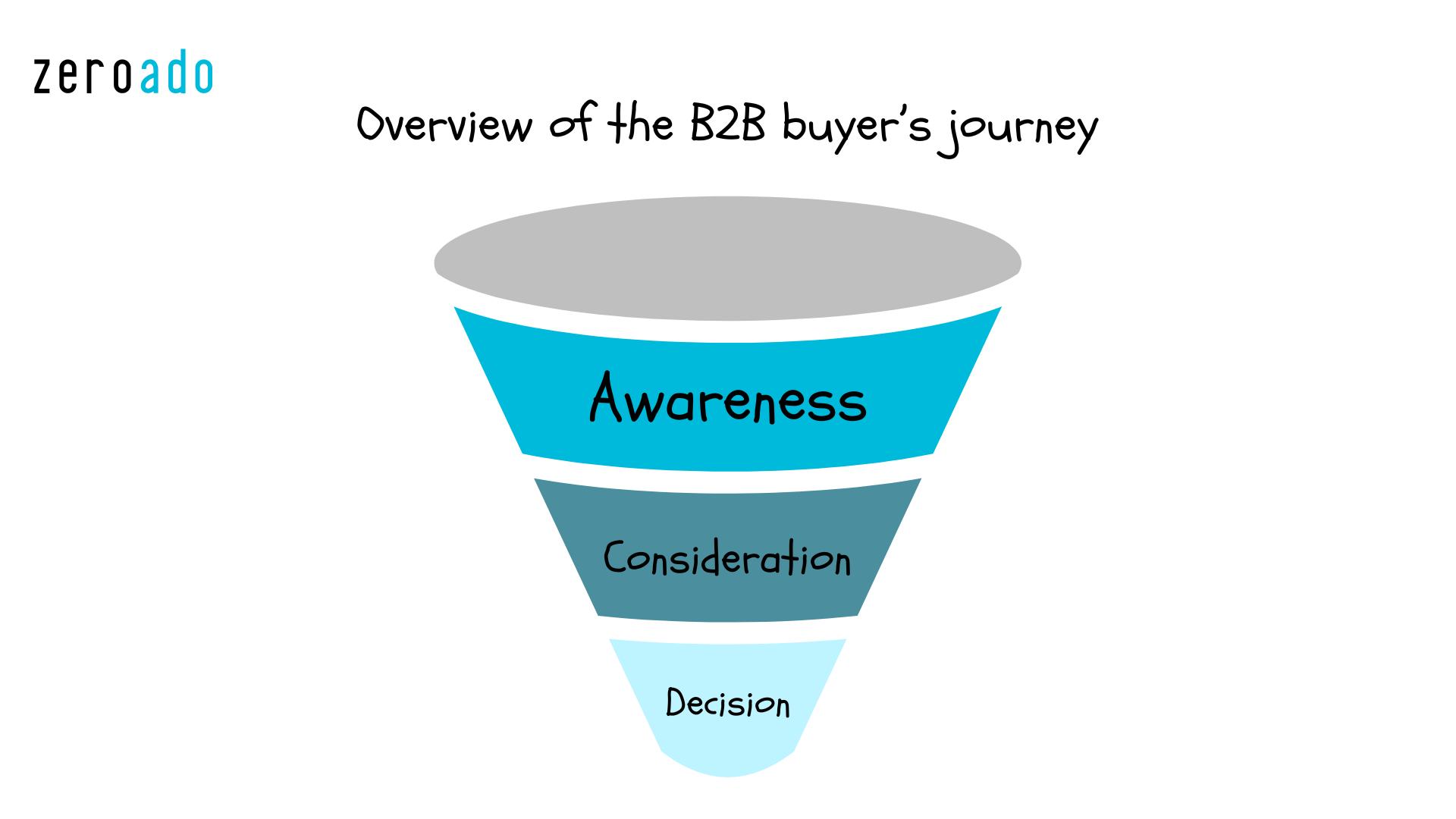
How SEO aligns with the buyer’s journey
Here’s where SEO becomes your best friend. By optimizing your website for specific keywords and creating the right type of SEO content, you can meet your buyers exactly where they are in their journey.
Keyword targeting for each stage:
- Awareness stage: Use keywords that help buyers learn about their problems, such as “why [problem] happens” or “benefits of [solution].”
- Consideration stage: Focus on keywords that compare solutions, like “[solution A] vs. [solution B]” or “top 10 tools for [problem].”
- Decision stage: Optimize for keywords that encourage buying, such as “buy [product]” or “pricing for [service].”
Content ideas for each stage:
- Awareness: Write blog posts, guides, or infographics that explain the buyer’s problem and possible solutions. For example, a guide titled “5 Reasons Your Projects Keep Failing and How to Fix Them” could attract buyers in this stage.
- Consideration: Create content that compares solutions, like case studies, product comparisons, or videos demonstrating how your solution works. This helps buyers evaluate their options.
- Decision: Offer detailed product pages, pricing information, testimonials, or free trials. This type of content reassures buyers that they’re making the right choice.
You might be thinking it’s always content and content when it comes to SEO. If not you can jump to the next heading.
Yes! Let me tell you, you’re not just throwing random content out there, you’re intentionally guiding your potential clients every step of the way.
Think about it:
- In the awareness stage, you’re building trust by helping them understand their problem.
- In the consideration stage, you’re showing them why your solution stands out.
- In the decision stage, you’re making it easy for them to choose you.
This approach ensures your business gets noticed by the right audience, builds trust, and ultimately turns leads into long-term customers. It’s like being their trusted advisor throughout their journey, which is exactly what your B2B clients are looking for.
Important aspects of B2B SEO
SEO isn’t just about getting your website to rank higher on Google–it’s about building a solid online presence that attracts the right clients and keeps them coming back. Let me walk you through some of the essential strategies and why they matter.
Essential B2B SEO strategies that you must know
Competition and industry analysis
To succeed in B2B SEO, you need to know what your competitors are doing. This means checking which keywords they’re targeting, what kind of content they’re creating, and how they’re building their SEO and content marketing strategy.
By analyzing their strengths and weaknesses, you can figure out what works well in your industry and where you can do better. For example, if your competitor’s blog ranks high for certain topics, you can create better and more detailed content on the same topics to attract their audience.
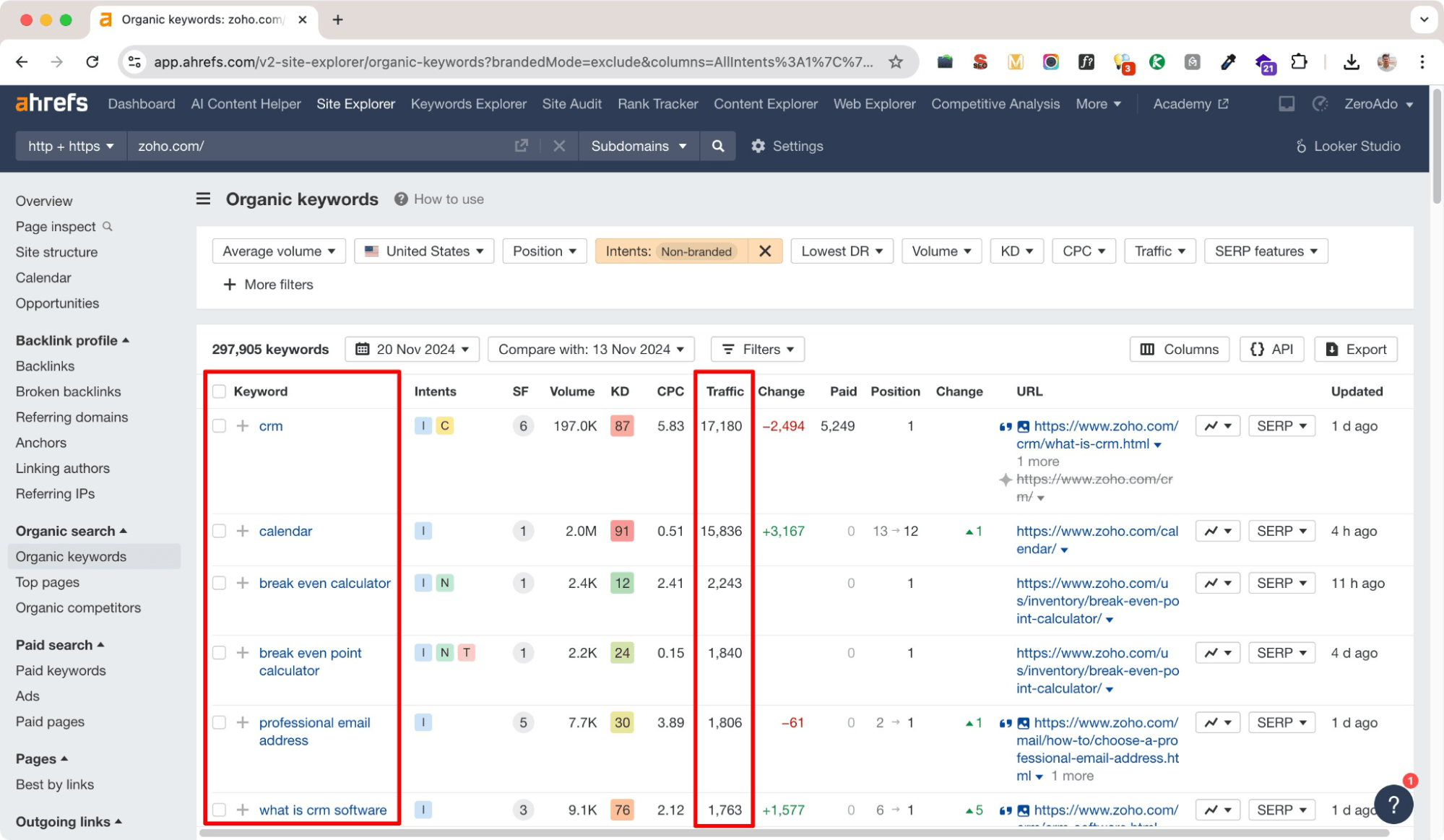
Tools like Ahrefs or SEMrush can help you find out which keywords your competitors are ranking for and how much traffic their pages get. This will guide your strategy and help you stand out.
Keyword research
Keywords are the words or phrases people type into Google when they’re searching for something. For B2B SEO, it’s important to find the right keywords that match what your potential clients are looking for.
Start by thinking about the problems your audience faces and how they would search for solutions. Use tools like Google Keyword Planner or SEMrush to find relevant keywords. Look for a mix of broad terms (like “CRM software”) and specific phrases (like “best CRM software for startups”).
Focusing on specific keywords is more helpful because they show what the user wants at different stages, whether they’re just learning about a problem or ready to buy a solution.
On-page SEO
On-page SEO is all about optimizing the content on your website so that search engines and users can easily understand it.
Suppose, if you’re targeting the keyword “lead generation software,” make sure this phrase appears naturally in your titles, headings, and throughout the page. But don’t just stuff it everywhere, your content should be helpful and easy to read.
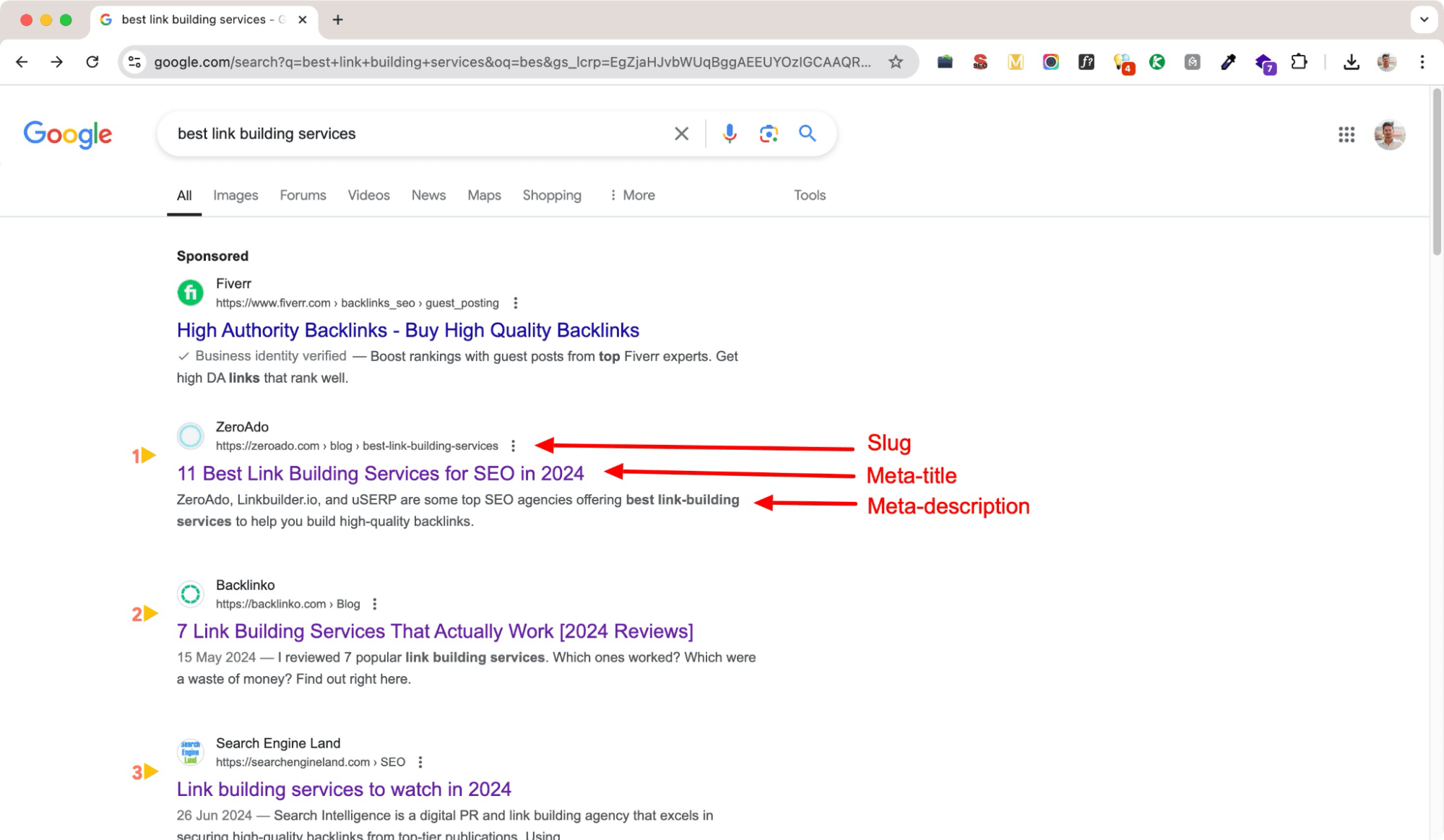
For instance, if I search for “best link building services” on Google, one of the top-ranking pages is from ZeroAdo (our content). This is because we carefully optimized the page for the target keyword. Here’s how we did it:
- The keyword “best link building services” is included in the URL (slug), making it clear and descriptive.
- It appears naturally in the meta-title and meta-description, ensuring that search engines and users instantly know what the page is about.
- We also used this keyword in the blog title and various headings, which helps search engines understand the topic and makes the page more user-friendly.
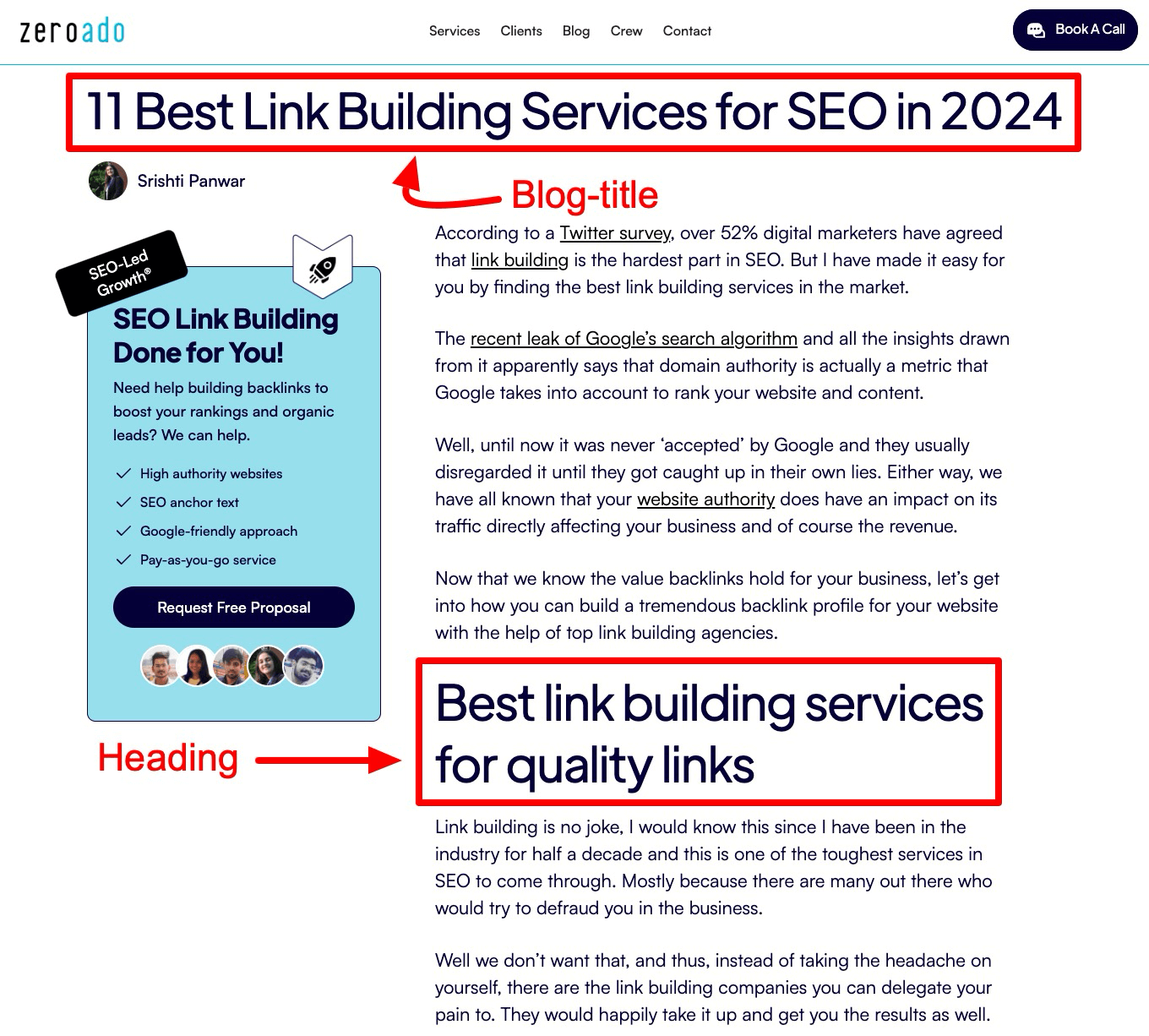
Technical SEO
Technical SEO is like cleaning up the backend of your website so it runs smoothly and search engines can easily find and understand your pages. Here’s what to focus on:
- Site speed: A slow-loading website can frustrate visitors and make them leave. Tools like Google PageSpeed Insights can help identify and fix speed issues.
- Mobile-friendliness: With most users browsing on their phones, your website needs to work perfectly on smartphones and tablets.
- Fix errors: Broken links or duplicate pages can confuse search engines, so it’s important to fix them.
I understand that all this might sound technical, but these elements are essential for helping search engines properly understand and index your content. This, in turn, can significantly improve your search rankings and visibility.
If managing these details feels overwhelming, don’t worry! You can always collaborate with a reliable SEO company that specializes in technical SEO. They’ll handle the complexities for you, improve your website’s performance, and let you focus on growing your business.
Content marketing is important for B2B SEO success
Content marketing plays a crucial role in B2B SEO because it helps your business attract and engage the right audience, establish authority, and convert prospects into customers. Let me explain how content marketing contributes to B2B SEO success and what types of content you should focus on.
Why is content marketing important for B2B SEO?
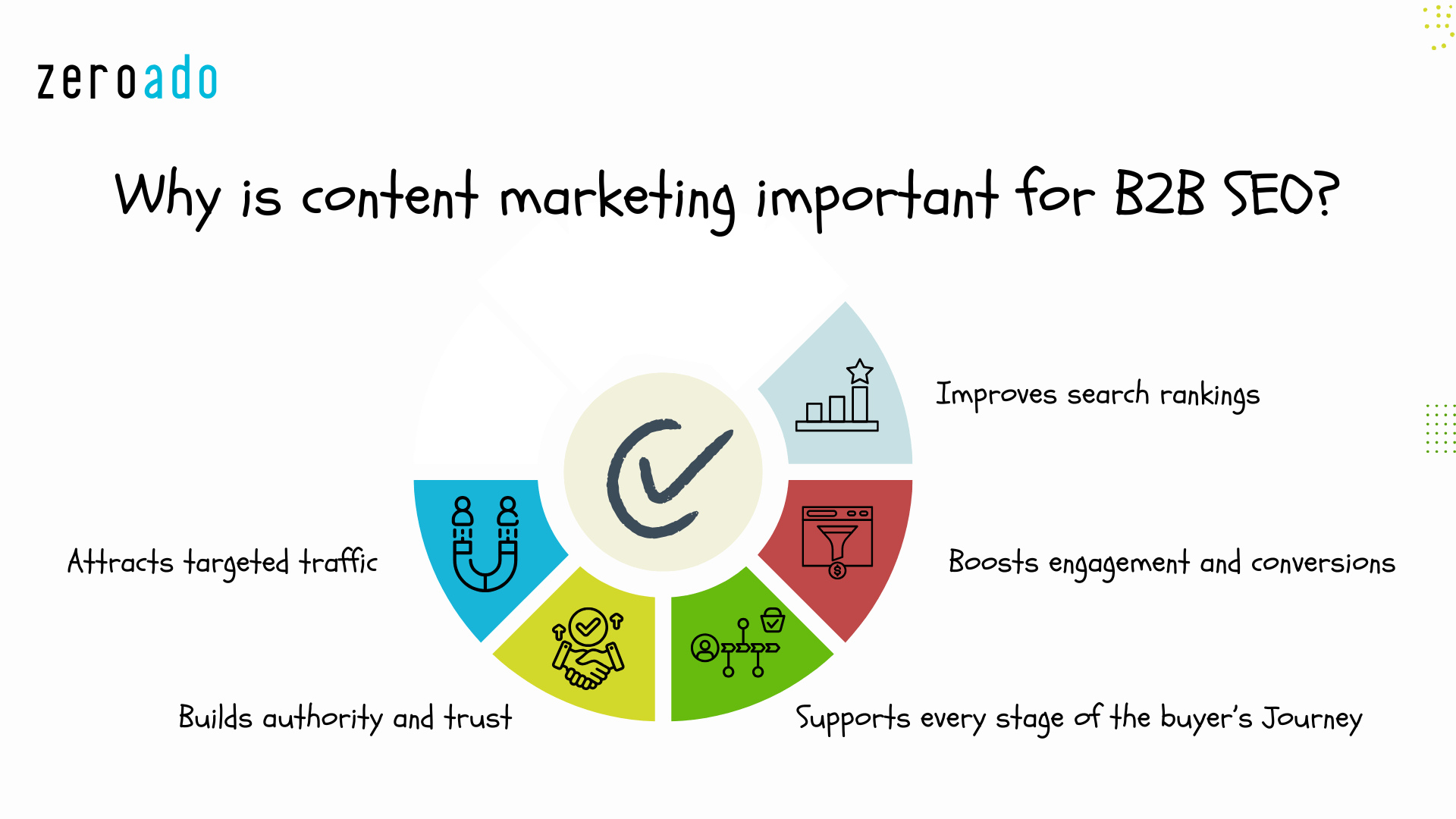
If you’re already creating content, great, keep it up! If not, start doing it ASAP. Why?
Because content marketing is the backbone of B2B SEO. It helps you address your target audience’s pain points, answer their questions, and establish your business as a trusted authority in your industry. Let’s discuss them one by one.
Improves search rankings
Search engines prioritize high-quality, relevant, and informative content. By consistently publishing valuable content, you can improve your website authority and increase its chances of ranking higher in search results.
Attracts targeted traffic
Content customized to your audience’s needs and pain points draws the right visitors to your website. This ensures that your traffic isn’t just random but made up of potential clients looking for solutions you offer.
Builds authority and trust
By sharing expert insights, data-driven reports, and real-life case studies, your business becomes a trusted source of information in your industry. This not only strengthens your brand reputation but also helps in lead generation.
Supports every stage of the buyer’s Journey
Whether your audience is just becoming aware of a problem, exploring solutions, or deciding on a purchase, content helps them move through each stage. It aligns perfectly with their needs, guiding them closer to choosing your business.
Boosts engagement and conversions
Engaging content like videos, interactive infographics, or webinars encourages users to spend more time on your site and increases the likelihood of conversions.
Types of content that you should create to target your audience
Different types of content serve various purposes and target different stages of the buyer’s journey. Didn’t get it? Let me break it down with the key types of content you can create:
Blog posts
Blog posts are great for answering your audience’s questions and addressing common pain points. For example, a blog titled “How to Improve Your Sales Pipeline with CRM Software” can attract potential clients looking for specific solutions. They are versatile and help you target keywords relevant to your industry.
Case studies
These are real-life success stories that showcase how your business has solved challenges for other clients. Case studies build credibility and are highly effective in the decision-making stage, helping potential clients trust your solutions.
Whitepapers and eBooks
Whitepapers and eBooks provide in-depth insights or solutions on industry-specific topics. These work well as downloadable resources, allowing you to collect leads while offering valuable content.
Videos and webinars
Videos are an engaging way to communicate your message, while webinars allow you to interact with your audience live. For example, a video explaining “How Our Product Simplifies Supply Chain Management” or a webinar on “Emerging Trends in B2B Marketing” can boost engagement and lead generation.
Infographics
Infographics make complex data easy to understand by presenting it visually. They’re highly shareable and great for illustrating statistics, processes, or comparisons. For example, an infographic on “The B2B Buyer’s Journey in 5 Steps” can attract attention.
Product pages and guides
These pages provide detailed information about your offerings, focusing on benefits and features. They help potential clients in the decision stage understand why your product or service is the best fit.
Interactive content
Think of interactive content. For example if you have a business related to investment tools like ROI calculators, assessments, or quizzes engage your audience while providing them with value.
How to make content marketing work for B2B SEO
- Understand your audience: Research your target audience’s pain points, questions, and interests to create content that truly resonates with them.
- Keyword optimization: Use SEO tools to identify the keywords your audience is searching for and naturally integrate them into your content.
- Focus on quality over quantity: One well-researched, valuable article is better than ten poorly written pieces. Aim for depth and relevance in everything you publish.
- Promote your content: Share your content on LinkedIn, email newsletters, or other channels where your audience spends time. This boosts visibility and drives traffic.
- Update and repurpose content: Refresh old blog posts, turn a whitepaper into a video, or create a series of social posts from an in-depth article to get the most out of your content.
Link building for B2B SEO
Link building is an essential aspect of B2B SEO that helps improve your domain authority and visibility in search engines. In simple terms, it’s about getting other reputable websites to link back to your site. These backlinks act like votes of confidence, signaling to search engines that your content is valuable and trustworthy.
For B2B businesses, link building is especially important because it helps you establish authority in a competitive space. For example, when a well-known industry blog or publication links to your website, it not only boosts your credibility but also increases the chances of attracting your target audience.
There are several strategies to build quality backlinks. One effective way is through guest posting on relevant industry websites, where you provide valuable content in exchange for a backlink. Another method is creating high-quality, shareable content, such as infographics, case studies, or in-depth guides, that others naturally want to link to. You can also leverage relationships with business partners or clients to secure links from their websites.
You can also consider buying backlinks from reputable link-building service providers. This method can be particularly useful in competitive industries or when you need to strengthen your backlink profile quickly. However, it’s crucial to ensure these links are high-quality, relevant, and acquired through ethical practices to avoid penalties from search engines.
However, while doing all these link building practices, it’s important to focus on quality over quantity. A few links from authoritative websites are far more valuable than many links from low-quality or irrelevant sites. Using tools like Ahrefs or SEMrush can help you analyze your backlink profile and identify opportunities for improvement.
Bonus tips [with examples]: Turn your website traffic into leads with B2B SEO and conversion strategies
Getting traffic to your website is great, but turning that traffic into actual leads is even better! Here are a few effective ways to make sure your visitors take action:
Create dedicated landing pages (LPs)
Design pages specifically for your campaigns or services with focused content and a single goal. For instance, a landing page for a new product could include benefits, testimonials, and a signup form to capture leads.
Use clear call-to-actions (CTAs)
Add buttons or links that guide your visitors on what to do next, like “Get a Free Quote,”,”Request Free Proposal”, “Download the Brochure,” or “Contact Us Today.” Make sure they stand out and are easy to find.
For example, in the “SEO Companies in Delhi” blog shared below, we’ve added a CTA to convert visitors into leads. By the way, we’ve applied this practice to all our blogs.
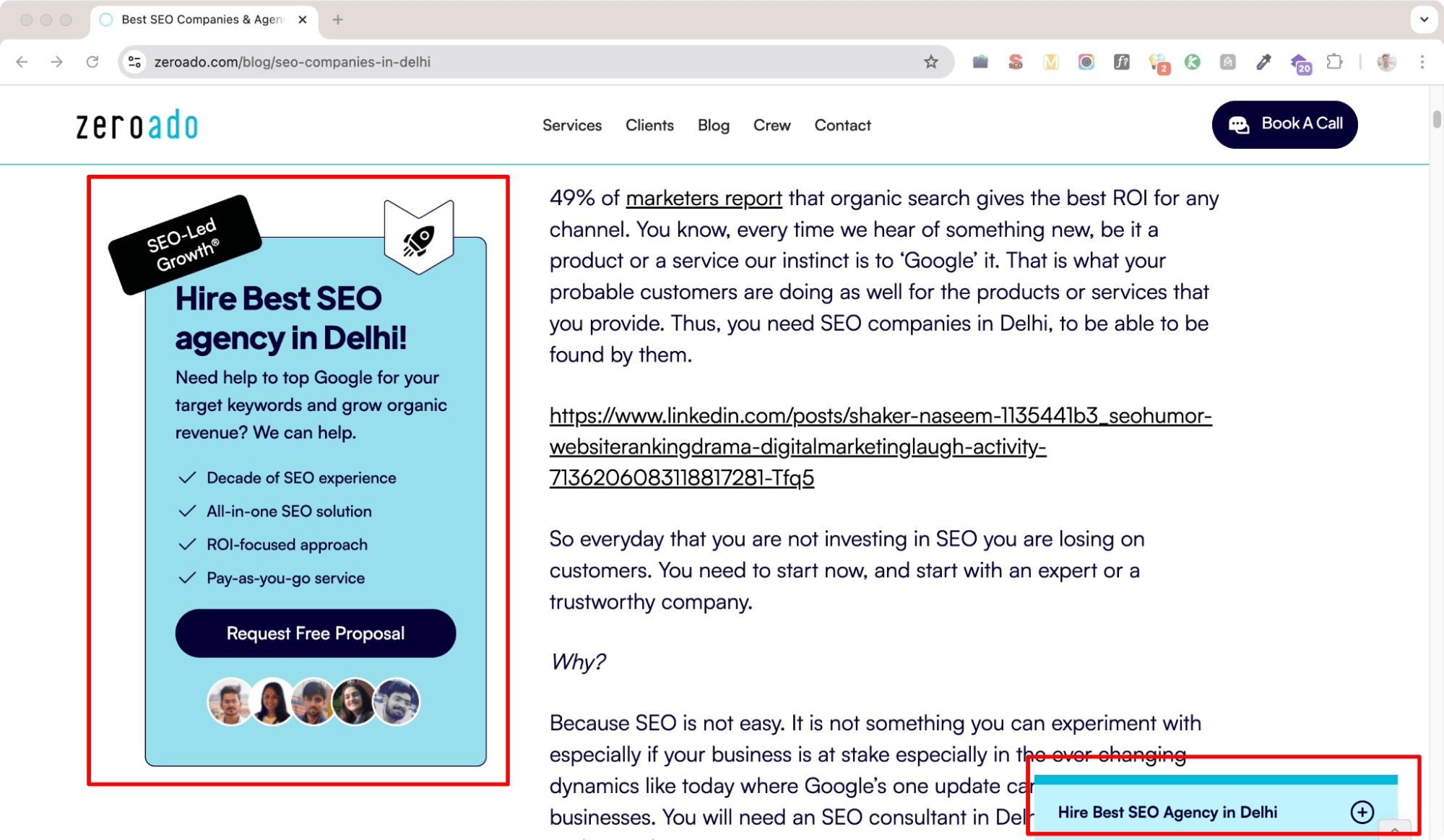
Add popups strategically
Popups can grab attention without being annoying if used wisely. For example, offer a free resource, like an ebook or checklist, in exchange for their email address.
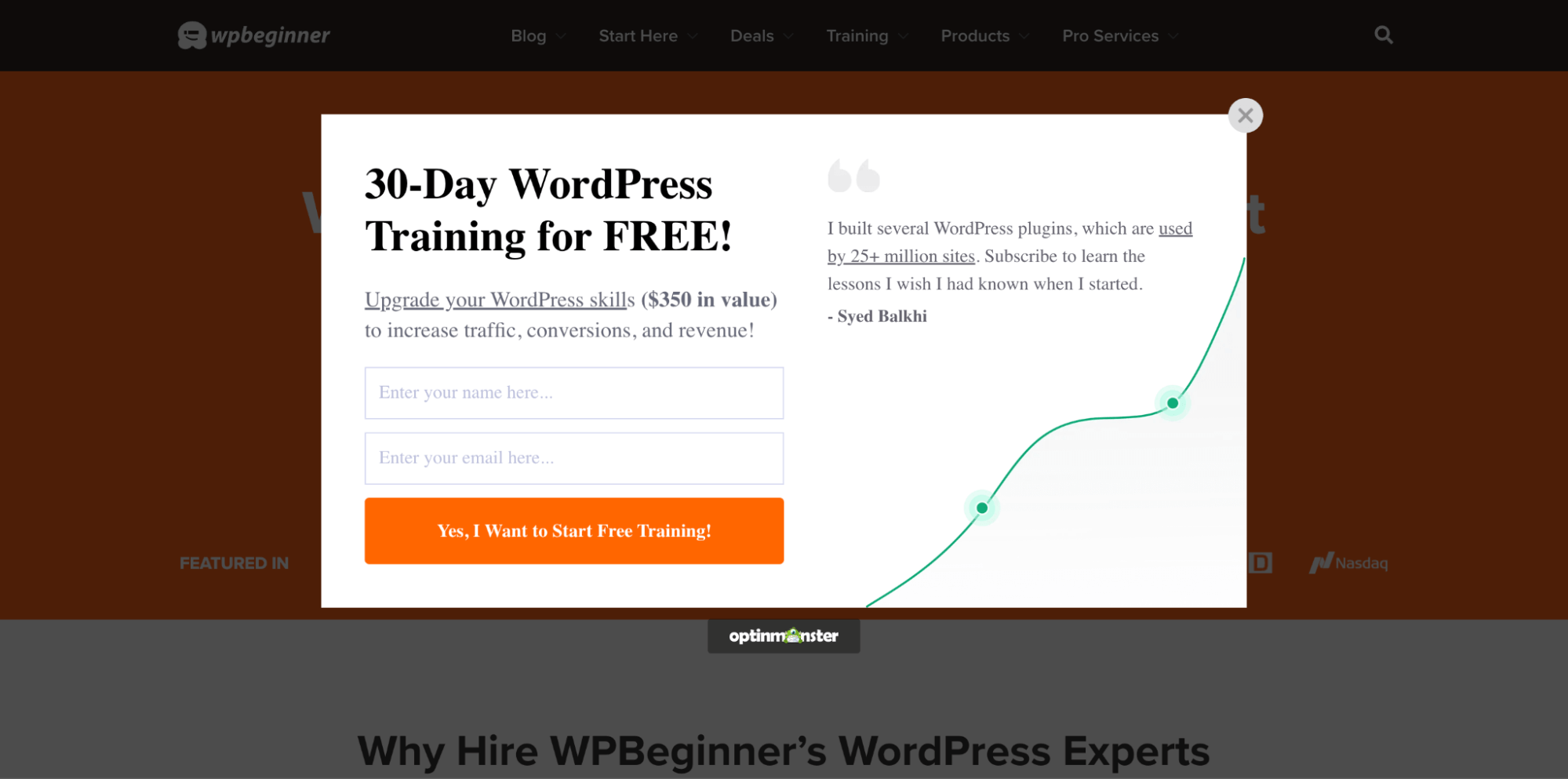
If you want more such examples of website pop-ups, you can explore our curated list or reach out to us for expert tips on creating effective pop-ups that engage and convert visitors.
Common B2B SEO mistakes that you must avoid
Even with a solid B2B SEO strategy, businesses can make mistakes that hinder their progress. Here are some common pitfalls to watch out for and how to avoid them:
Ignoring your audience’s search intent
Many businesses focus solely on keywords without considering why their audience is searching for those terms. For example, if someone searches for “best CRM software,” they’re likely looking for comparison articles or reviews, not a direct product page. Ignoring search intent can lead to irrelevant content and lower rankings.
Solution: Always match your content to the user’s intent–informational, navigational, or transactional.
Overlooking mobile optimization
With more B2B decision-makers using mobile devices to research products and services, a non-mobile-friendly website can drive away potential clients. Slow load times or clunky navigation can hurt user experience and rankings.
Solution: Ensure your website is responsive and performs well on all devices. Tools like Google’s Mobile-Friendly Test can help identify issues.
Neglecting technical SEO
Issues like broken links, duplicate content, slow site speed, and poor URL structures can make it difficult for search engines to crawl and index your site. These errors can hurt your visibility and rankings.
Solution: Regularly audit your site using SaaS tools like Ahrefs or Screaming Frog to fix technical issues.
Stuffing keywords
Overloading your content with keywords can make it sound unnatural and harm your rankings. Search engines penalize keyword stuffing as it diminishes user experience.
Solution: Focus on using keywords naturally and prioritize readability over keyword density.
Producing low-quality or generic content
Publishing content that doesn’t provide value or is too generic can fail to engage your audience. Such content doesn’t differentiate your brand or address specific client needs.
Solution: Focus on creating unique, high-quality content tailored to your target audience’s challenges and questions.
Failing to update old content
Content that once ranked well can lose its position over time if it becomes outdated or irrelevant. Businesses often forget to revisit older content to keep it fresh and competitive.
Solution: Regularly update older blog posts, case studies, and guides with current data, trends, and keywords.
Overlooking local SEO for B2B
For B2B businesses with a physical presence or regional clients, ignoring local SEO can result in lost opportunities.
Solution: Optimize for local search by creating a Google Business Profile, using local keywords, and gathering client reviews.
B2B SEO case studies and success stories
Let’s talk about some businesses that have implemented B2B SEO strategies and achieved remarkable results.
Hubspot
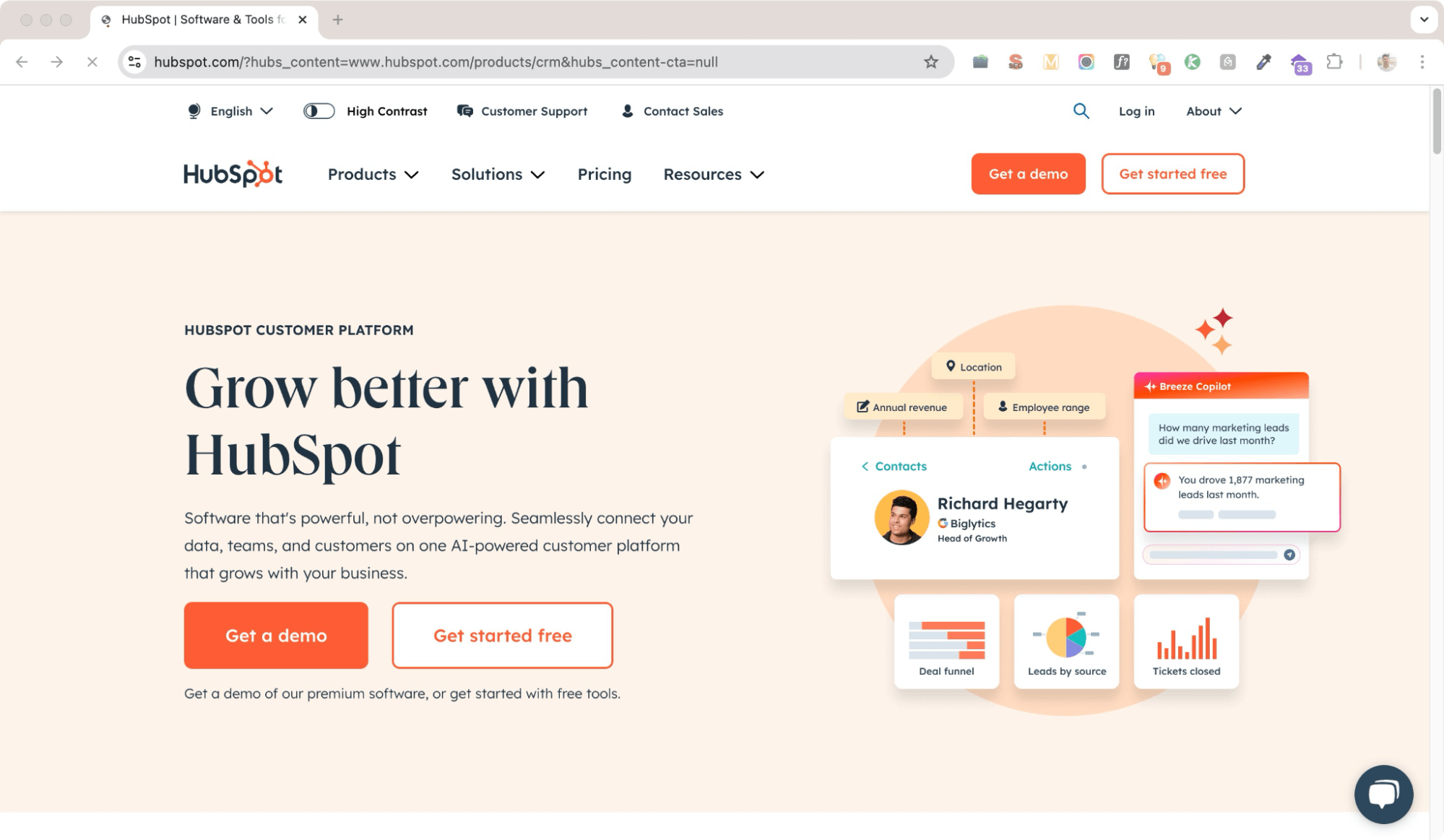
By focusing on inbound marketing, HubSpot optimized its SEO strategy to rank for high-intent keywords related to CRM software and SaaS marketing tools. Their blog content and free resources, like templates and tools, drive consistent organic traffic, generating quality leads and brand authority.
Shopify
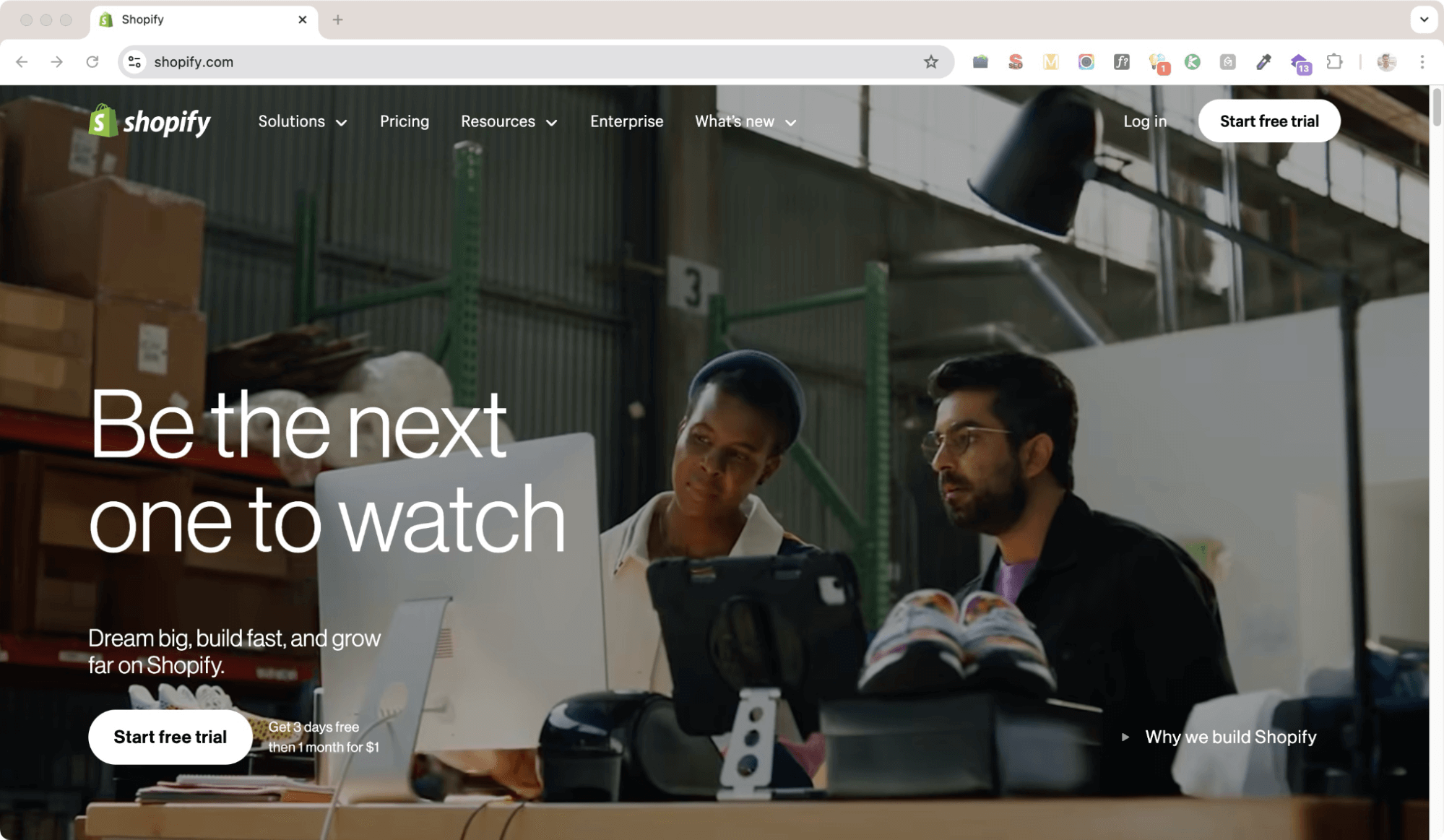
Shopify is a great example of how B2B SEO can drive results. They create high-quality, detailed content targeted at businesses looking to start or grow their online stores.
For example, Shopify’s blog offers comprehensive guides like “How to Start an Online Store” and “E-commerce Tips,” which are optimized for keywords that potential customers are searching for, such as “best e-commerce platform for small businesses.”
Shopify also localizes its content to target audiences in different countries, ensuring global visibility. This strategy helps them rank high in search results and attracts businesses ready to invest in an e-commerce solution.
Zoom

Originally targeting enterprises with video conferencing solutions, Zoom expanded its B2B SEO efforts by offering customized resources, webinars, and landing pages optimized for business-specific queries. This approach helped increase visibility across different market segments.
Airtable
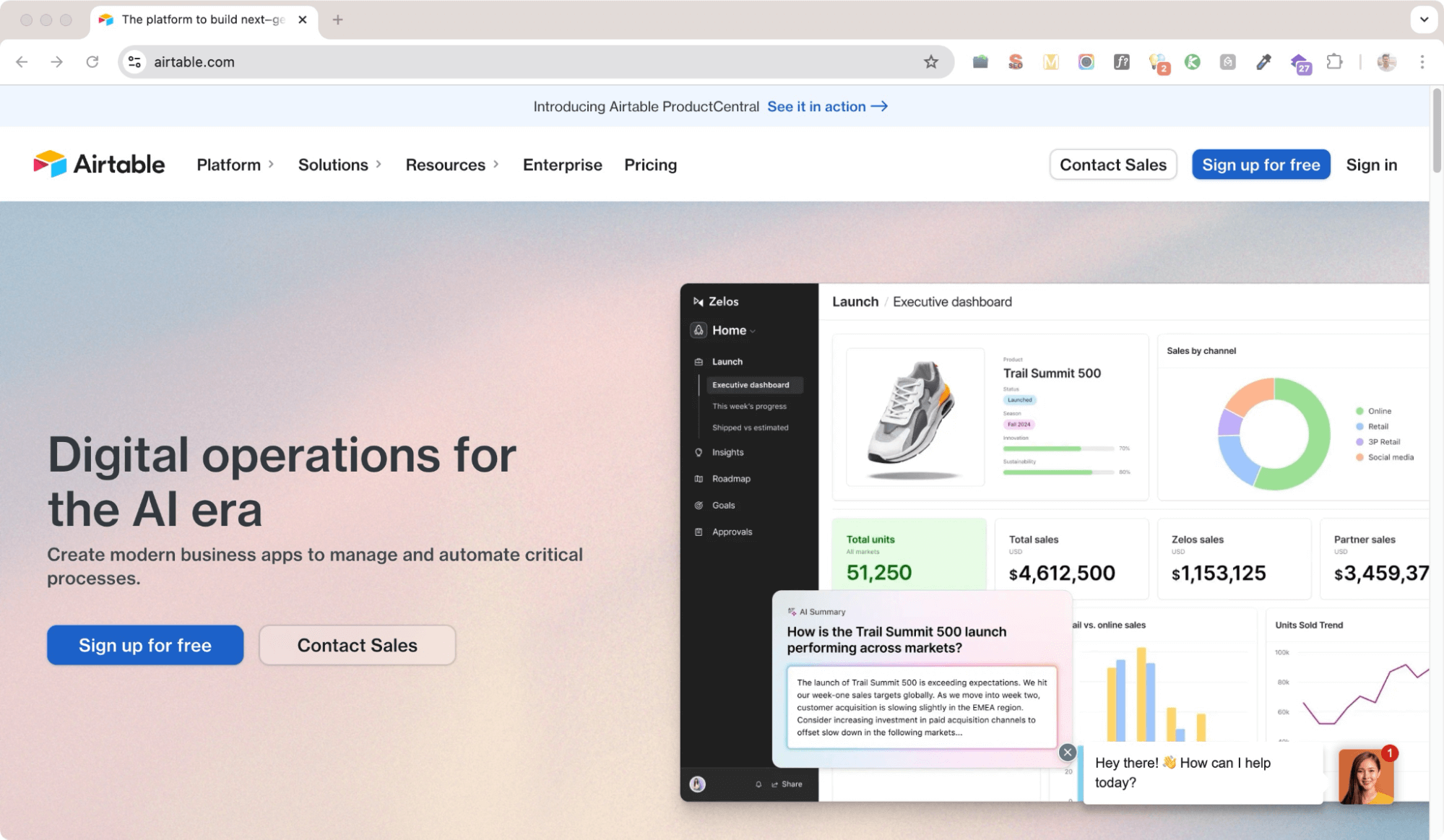
Airtable focuses on solving business-specific problems through SEO. They create educational content targeting keywords like “team collaboration tools” and “best project management software.” Airtable also provides industry-specific resources, such as templates and guides tailored for marketing, product development, and HR teams.
They use visual content like videos and case studies to engage users and improve their SEO performance. This approach has made Airtable a top choice for businesses looking for a tool that combines the simplicity of spreadsheets with the power of databases.
Dell
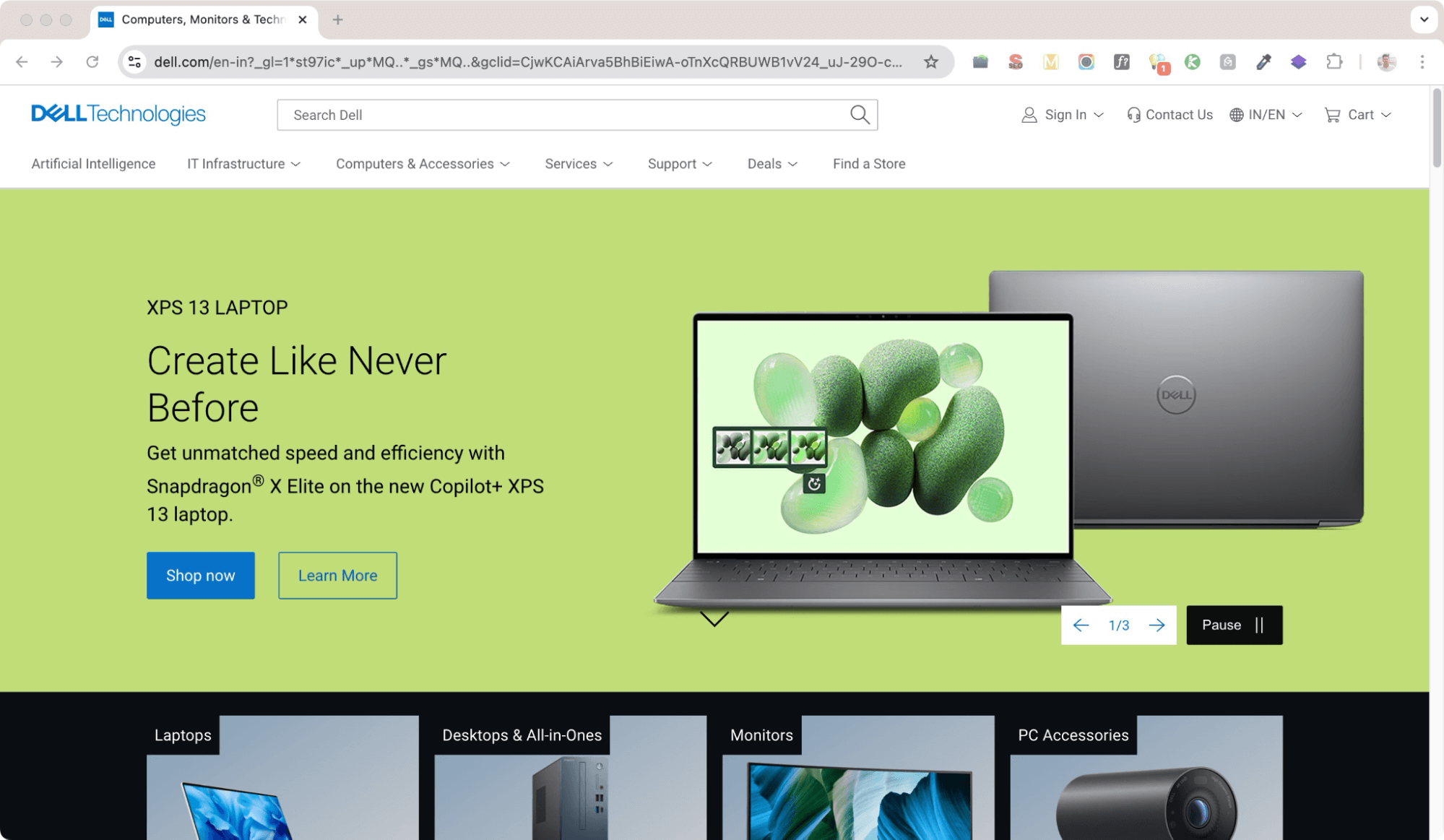
Dell uses a hybrid B2B strategy by offering customizable solutions for businesses alongside consumer-friendly products. Their SEO efforts include detailed product pages, technical blogs, and tailored content for industries like healthcare and education.
These are just a few examples of brands using B2B SEO to grow their businesses. In fact, these examples only represent a tiny fraction–less than 0.01%–of the millions of companies that use SEO as a key part of their marketing. Countless businesses rely on SEO to improve their online visibility, attract customers, and boost sales.
So, why wait and fall behind? It’s time to take action! Hiring the right SEO agency can help you kickstart your B2B SEO journey and make the most of the many opportunities SEO offers. Don’t miss out on these chances to grow your business–start today and watch your business thrive!
How to choose the right B2B SEO agency
Choosing the right B2B SEO agency is crucial for your business’s online success. The right agency will help you boost your visibility, drive more qualified traffic, and ultimately generate leads. Here’s how you can pick the best SEO agency for your needs:
Experience in your industry
It’s important to choose an agency that has experience working with businesses in your industry. They’ll understand the unique challenges and customer behaviors in your field, allowing them to create more effective strategies customized to your business.
Proven track record
Look for an agency with a proven track record of success. They should be able to share case studies, success stories, or references from other B2B clients that demonstrate their ability to deliver results.
Comprehensive SEO approach
A good B2B SEO agency will use a holistic approach that includes keyword research, on-page SEO, content marketing, technical SEO, and link building. Ensure they have a clear, data-driven strategy that covers all aspects of SEO.
Transparency and communication
The agency should be transparent about their process and provide regular updates on the progress of your campaign. Good communication ensures you’re aligned on goals, expectations, and timelines.
Customized strategies
Every business is different, so avoid agencies that use a one-size-fits-all approach. Your B2B SEO strategy should be tailored specifically to your company’s needs, goals, and target audience.
Understand the metrics that matter
The agency should focus on metrics that matter to your business, traffic, conversion rates, lead generation, and ROI, not just vanity metrics like rankings.
If you’re looking for a reliable, experienced SEO agency that can deliver measurable results, ZeroAdo is a great choice. With a proven track record in B2B and SaaS SEO, ZeroAdo customizes strategies to help businesses achieve long-term growth and success.
B2B SEO tools and platforms – A quick guide
When it comes to optimizing your B2B website, using the right tools and platforms is essential for driving results. These tools can help you with everything from keyword research to performance tracking, making SEO tasks more efficient and effective. By the way, we’ve already detailed this in our blog on B2B SEO tools. Here’s a quick overview of some of the top ones worth exploring:
Ahrefs
Ahrefs is one of the most powerful SEO tools available. It offers in-depth keyword research, backlink analysis, and competitor research. With Ahrefs, you can identify high-ranking keywords, monitor backlinks, and track your SEO performance. It’s a great tool for understanding your site’s authority and where you can improve.
SEMrush
SEMrush is another all-in-one SEO tool that’s highly popular among B2B marketers. It helps with keyword research, site audits, backlink tracking, and competitor analysis. SEMrush also offers insights into paid search campaigns, so you can create a more integrated digital marketing strategy.
Google Analytics
Google Analytics is essential for tracking website traffic and performance. It provides detailed insights into how visitors are interacting with your website, which pages are performing best, and where your traffic is coming from. This data is crucial for refining your SEO strategies and understanding your audience.
Moz Pro
Moz Pro offers an easy-to-use platform for on-page SEO, keyword research, and link building. It provides detailed reports on how your website ranks for specific keywords, as well as advice on improving rankings. Moz Pro’s Link Explorer is particularly useful for backlink research.
Ubersuggest
Ubersuggest is a budget-friendly SEO tool by Neil Patel that’s perfect for small to mid-sized B2B businesses. It offers keyword suggestions, competitive analysis, and backlink data, allowing you to optimize your content and track your SEO efforts effectively.
Yoast SEO (for WordPress)
If you’re using WordPress, Yoast SEO is a must-have plugin. It helps optimize your content by suggesting improvements for meta descriptions, headings, and keyword density. It also offers readability checks to ensure your content is engaging and user-friendly.
Screaming Frog
Screaming Frog is a powerful technical SEO tool that crawls your website to identify issues like broken links, missing metadata, and duplicate content. It’s great for performing comprehensive SEO audits and ensuring your site is optimized from a technical standpoint.
BuzzSumo
BuzzSumo is a content research tool that helps you find popular content in your industry. It shows you the most shared content and trending topics, allowing you to tailor your content strategy to what’s resonating with your audience.
SpyFu
SpyFu is great for competitor research. It allows you to see the keywords your competitors are ranking for, as well as their paid search campaigns. This helps you identify gaps in your own strategy and discover opportunities to outperform your competitors.
Surfer SEO
Surfer SEO is an on-page optimization tool that analyzes top-ranking pages and compares them to your own. It provides recommendations for improving your content, keyword usage, and overall SEO strategy to help you rank higher in search results.
Build a world class B2B SEO strategy for your company
Every year, many businesses launch, but only a few manage to grow and succeed. To make sure your company stands out in the competitive world of B2B, you need a strong SEO strategy. With the right SEO plan, you can improve your online visibility, attract high-quality leads, and drive more traffic to your website.
SEO is not a one-time job. It requires regular updates and adjustments to stay effective. By focusing on key areas like on-page SEO, content marketing, link building, and technical SEO, you can create a solid foundation for long-term growth.
The sooner you start working on SEO, the faster you’ll see results. Don’t let your competitors take the lead–start today. Whether you need help getting started or expert advice, partnering with a good SEO agency like ZeroAdo can make all the difference.
So, why wait for success to come to you? Start building your B2B SEO strategy now and watch your business grow.
Reach out to us to see how we can help your company succeed with SEO.
Think growth ? Think ZeroAdo ?
Frequently asked questions – B2B SEO
What is B2B in SEO?
B2B SEO (Business-to-Business Search Engine Optimization) focuses on optimizing a website to attract businesses as clients. It involves creating content and strategies tailored to decision-makers and industry professionals. Unlike B2C SEO, which targets individual consumers, B2B SEO prioritizes building trust, generating leads, and nurturing long-term business relationships through targeted and informative content.
Is SEO worth it for B2B?
Yes, SEO is a valuable investment for B2B businesses. It enhances visibility in search engines, making it easier for other businesses to find your products or services. By improving organic search rankings, B2B companies can generate high-quality leads, establish industry authority, and achieve cost-effective marketing results. Over time, SEO helps build credibility and trust with both search engines and potential clients.
What is a B2B SEO agency?
A B2B SEO agency specializes in developing SEO strategies specifically for businesses targeting other businesses. These agencies provide services such as keyword research, content creation, link building, and technical optimization. Their goal is to improve search engine rankings and drive relevant traffic, helping B2B companies increase leads and conversions while aligning SEO efforts with broader business goals.
What specific SEO for a B2B strategy are currently used by professionals?
Professionals implement several B2B SEO strategies, including targeting keywords that align with the buyer’s journey, creating valuable content like case studies and blogs, and ensuring websites are fast and mobile-friendly. They also focus on earning quality backlinks from industry-relevant sites, using local SEO to capture regional audiences, and analyzing data to continuously improve performance. These tactics help B2B companies reach decision-makers effectively.
What are the B2B SEO strategies?
Effective B2B SEO strategies include thorough keyword research to target terms used by business clients, optimizing on-page elements like titles and meta descriptions, and improving technical aspects like site speed and mobile usability. Creating high-quality, informative content that addresses specific industry needs is crucial. Building links from credible sources and tracking performance through analytics also play a major role in achieving success.
What is B2B SEO and how do we improve it?
B2B SEO involves optimizing a website to improve its visibility in search engines, specifically targeting other businesses as clients. To improve B2B SEO, focus on identifying and using the right keywords, publishing high-value content tailored to your industry, and ensuring your website is technically sound. Building quality backlinks and continuously refining strategies based on performance data are also key steps.
What are B2B SEO tools, and why are they important?
B2B SEO tools, such as Ahrefs, SEMrush, and Screaming Frog, help businesses implement and monitor SEO strategies efficiently. These tools are used for tasks like keyword research, competitor analysis, backlink tracking, and identifying technical issues. They are important because they provide actionable insights, save time, and help businesses refine their strategies to stay competitive in the digital space.
